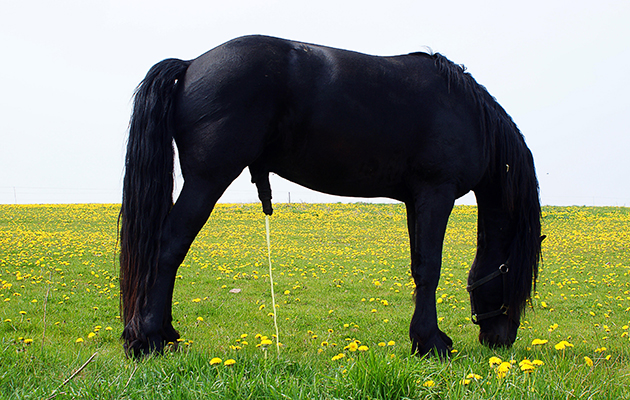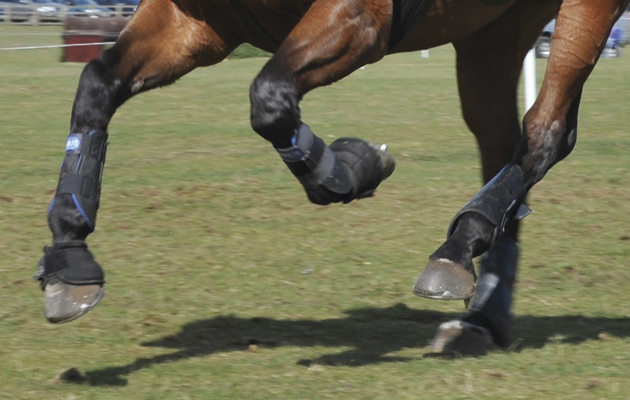Do you look away when your horse urinate? You shouldn’t, because by knowing what is normal, you could spot a potential health problem quickly.
Bear in mind that not all urine looks the same. Natural differences in colour, concentration and smell occur due to a number of factors. The following is considered normal urine:
1. Pale in colour
Horses with unlimited access to water will have more dilute, paler and less pungent urine.
2. Dark yellow
Restricted water intake or excessive sweating in hot weather can lead to more concentrated urine.
3. Orange-red
When naturally occurring Urocatechins (compounds) in horses’ urine is oxidised by light after being passed, it causes them to turn orange /red in colour. Sometimes this is mistaken for bloody urine.
4. Cloudy
Horses tend to absorb excessive calcium from the intestine and then eliminate it via urine, which gives it a cloudy/milky appearance.
5. Foamy
Urine is bubbly when first passed due to containing mucus, which acts as a lubricant to prevent calcium carbonate crystals from turning into stones.
6. Smelly
The more protein in the horse’s diet the more urea and ammonium — two breakdown products of protein — he will produce and excrete. So that explains the ammonia smell you might notice in the stable.
What’s abnormal?
Any changes in what is normal for your horse could point to problems, so it is worth monitoring your equine’s habits. Seek veterinary advice if you horse’s urine is:
7. Little and often, or bloody
Cystitis sufferers will pass small quantities of urine that may contain blood. This is a common urinary track condition more common in mares due to their shorter urethra allowing infection to gain access to the bladder more easily.
8. Infrequent or uncomfortable
Urolithiasis is the formation of kidney stones called calculi in the kidneys or, more commonly, the bladder. A total blockage can be fatal.
9. Very dark in colour
Urine in a horse suffering from rhabdomyolysis (azoturia/tying up) is very dark. This is due to a change in the permeability of muscle cell membrane, which causes large quantities of protein to be voided into the blood and then excreted through urine.
Seasonal pasture myopathy also causes dark-coloured urine and is often fatal.
Like this? You might also enjoy reading these:
Atypical myopathy: what you need to know right now to keep your horses safe
The Micklem bridle: what you need to know
Subscribe to Horse & Hound this spring for great savings
For all the latest news analysis, competition reports, interviews, features and much more, don’t miss Horse & Hound magazine, on sale every Thursday.




